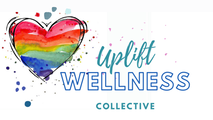 What if we could savor a compliment as well as we could savor a good bowl of ice cream, a piece of Godiva chocolate, or a ripe strawberry? When you receive praise—whether about your new outfit or an accomplishment at work- do you deflect it? Or do you savor it? To increase our well-being, we should get better at this. Here is why. We need to be able to celebrate ourselves to truly flourish. Accomplishment is one of the five elements of human flourishing, as outlined in Martin Seligman's well-being theory (PERMA). Feeling a sense of accomplishment contributes to developing positive well-being over time. The research contributes to this understanding. For example, developing achievement, a strong sense of purpose, and persistence help us improve at school and work. We are less likely to give up on tasks when we are confident that we have the necessary skills to be successful. Aligning a task to our sense of purpose increases our likelihood of completing it. Working towards a goal, especially one with personal value, and mastering an endeavor can give one a sense of accomplishment. These achievements can contribute to our well-being when we actively savor our successes and the acknowledgments we receive from others. Unfortunately, most of us could be better at acknowledging our accomplishments AND enjoying praise from others. In general, we tend toward the self-critical rather than the self-compassionate, toward negative self-talk rather than positive self-talk. Research indicates that when we are kind to ourselves, we feel more confident and view ourselves more positively. People who are kind to themselves, including acknowledging and receiving praise for their accomplishments, have increased motivation and improved productivity, relationships, and physical health. They are flourishing.  One way to be kinder to ourselves and increase our well-being is to get better at receiving kudos, compliments, and praise so that we may savor our achievements. Like everything else, it is easier to do with a plan and practice. Here's how to do it—four easy steps. 1. Thank the person for noticing. 2. Appreciate their attention and intention. 3. Look for good quality in the other person and return the compliment. 4. Take the acknowledgment you are given as an opportunity to be grateful to your teachers. (Shetty, 2020). Thank the person for noticing. Appreciate their attention and intention. Making this a regular practice helps us to train our brains to shift to a positive mindset and overall improved well-being. Expressing gratitude leads to lasting changes in the brain's prefrontal cortex, known for attention, memory, and self-regulation. Look for a good quality in the other person and return the compliment. Turnabout is not only fair play but also good practice! Help nurture someone else's well-being by noticing one of their strengths or helpful contributions. Every time you give a compliment or share praise, it lights up the same area of the brain as when one receives cash—the reward system! Our brains are pre-wired to focus on the negative; giving and receiving compliments or praise creates the opportunity to retrain the brain to think more positively, which reduces stress and burnout. Take the acknowledgment you are given as an opportunity to be grateful to your teachers. This is an opportunity for you to reflect upon your strengths. What was your achievement? What went well? What allowed you to be successful? Who helped you to learn these skills? When we feel grateful, our brains release dopamine, a reward chemical that makes us want to feel that way again. This promotes gratitude as a habit. You are setting up the brain, a pattern-seeking device, to keep looking for things to be grateful for. Learn more about promoting your well-being overall and gratitude specifically by reading: Jay Shetty’s Think Like a Monk: Train Your Mind for Peace and Purpose Every Day, 2020., and Martin Seligman’s Flourish: A Visionary New Understanding of Happiness and Well-being, (2011).
Comments are closed.
|
Author: Karin H. Spencer, EdD, NCPTThanks for visiting the Uplift Blog! I'm an educator, Pilates enthusiast (NCPT), reflective practitioner and Ironman triathlete. I love helping others discover their joy and confidence as movers. I support others in making lifestyle changes to improve health and well-being. As a life-long educator, I am especially committed to joining together with teachers to uplift each other. Archives
May 2023
Categories TERMS AND CONDITIONS PRIVACY POLICY DISCLAIMER
c 2022 All Rights Reserved Education and Wellness Consulting, LLC |
Search by typing & pressing enter




 RSS Feed
RSS Feed